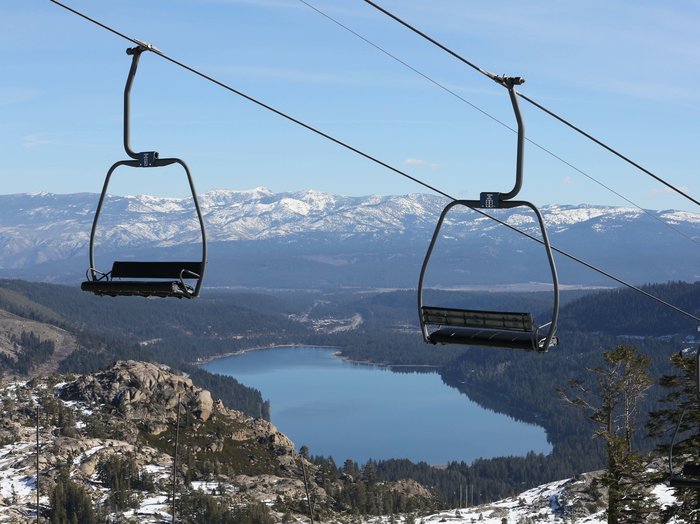It's been a painfully slow start to the ski season in the Western U.S. Some places have seen record warm temperatures and record low snowfall, prompting resorts to open late. Those that cranked out fake snow had trouble attracting avid skiers who prefer the real stuff. And all this means an economic hit.
A new report finds that a low-snow year can cost the U.S. winter sports industry up to $1 billion. Protect Our Winters, a climate advocacy nonprofit, says as the climate warms, winter activities like skiing, snowboarding and snowmobiling could end up contributing less to the overall economy.
"When somebody goes and skies, they don't just spend money on that lift ticket," says Rebecca Hill, a Colorado-based natural resources economist who contributed to the report. "They also spend money at restaurants in the area. They buy gas in the area. So it's those other support industries that are also going to be harmed."
Low and variable snowfall is expected to become more commonplace as the climate warms. Across the West this year, ski resorts from Colorado to California have seen slow starts to their seasons amid the warmer temperatures and minimal snowfall. Last month Vail Resorts, which operates 11 destination ski resorts across North America, reported a 10.8 percent drop in skier visits in part due to low snow.
Hi! I am a robot. I just upvoted you! I found similar content that readers might be interested in:
https://www.npr.org/2018/02/23/588106531/new-report-finds-climate-change-could-take-a-1-billion-bite-from-winter-sports